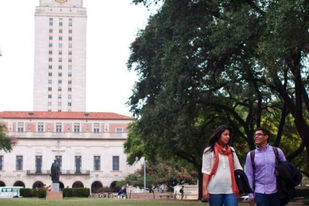top of page

A legal and policy advocacy organization that educates the public and policymakers about the rule of law and constitutionally limited government.
Affirmative Action: Restoring Constitutional Rights in Higher Education


Unfortunate SCOTUS Decision in High School Admissions Case
The Supreme Court’s decision not to review the Thomas Jefferson admissions case is unfortunate.


Discussion of Major Pending Supreme Court Decisions: Curt Levey on Court Watch podcast
CFJ’s Curt Levey sat down with Washington Times reporter Alex Swoyer on her Court Watch podcast to discuss pending Supreme Court decisions.


CFJ to SCOTUS: Harvard’s 100 Years of Racial Discrimination is Enough
CFJ statement: Harvard’s 100 years of racial discrimination—in the name of furthering an amorphous interest in diversity—is enough.


Supreme Court Has Chance to 'Sunset' Affirmative Action in College Admissions
Newsmax: "Curt Levey said affirmative action policies are more about the institution considering them than the students affected by them."


When Filling Breyer’s Seat, Biden Should Put Race & Gender Aside
Press Release: Biden should exclude no qualified person from consideration as a Supreme Court nominee based on their race or gender.


Affirmative Action on the Line as SCOTUS Takes Harvard & UNC Cases
Supreme Court takes Harvard & UNC affirmative action cases


CFJ Joins Conservative Leaders in Letter of Support for Neomi Rao
Professor Rao’s academic qualifications and professional experiences are exceptional — Bachelor of Arts cum laude from Yale University, Juri


Panel: Affirmative Action and Higher Education Admissions
Join CFJ on November 17 at the Council of Korean Americans (CKA) National Summit for a panel discussion of affirmative action and race-based


Law Firm Preferences: Civil Rights Practice Group Podcast
Major American corporations are pressuring their outside law firms to meet diversity goals both firm-wide and in the legal teams assigned to


Justice Department Should Investigate Unintended Consequences of Affirmative Action in College Admis
The debate about racial preferences in admissions has been reignited by news that the Justice Department’s civil rights division anticipates


Trump May Find No Easy Targets if He Attacks Race in Admissions
Curt A. Levey, president of the Committee for Justice, a conservative advocacy group focused on the federal judiciary, helped challenge the


'Fisher v. Texas': Experts Weigh In
The long wait is over. After months of deliberation, the U.S. Supreme Court has vacated a decision by the U.S. Court of Appeals for the Fift
Faculty Appointment at Columbia U. Is Criticized as Political Favoritism
Nearly four years after leaving the presidency of the University of Michigan, Lee C. Bollinger is again under fire from critics of its race-


Michigan: Who Really Won?
Colleges' cautious reaction to the Supreme Court's affirmative-action decisions may have snatched defeat from the jaws of victory. I


At U. of Washington, a First Test of the Michigan Rulings
An advocacy group that has led the legal assault against race-conscious college admissions is hoping to use a longstanding lawsuit...
bottom of page
